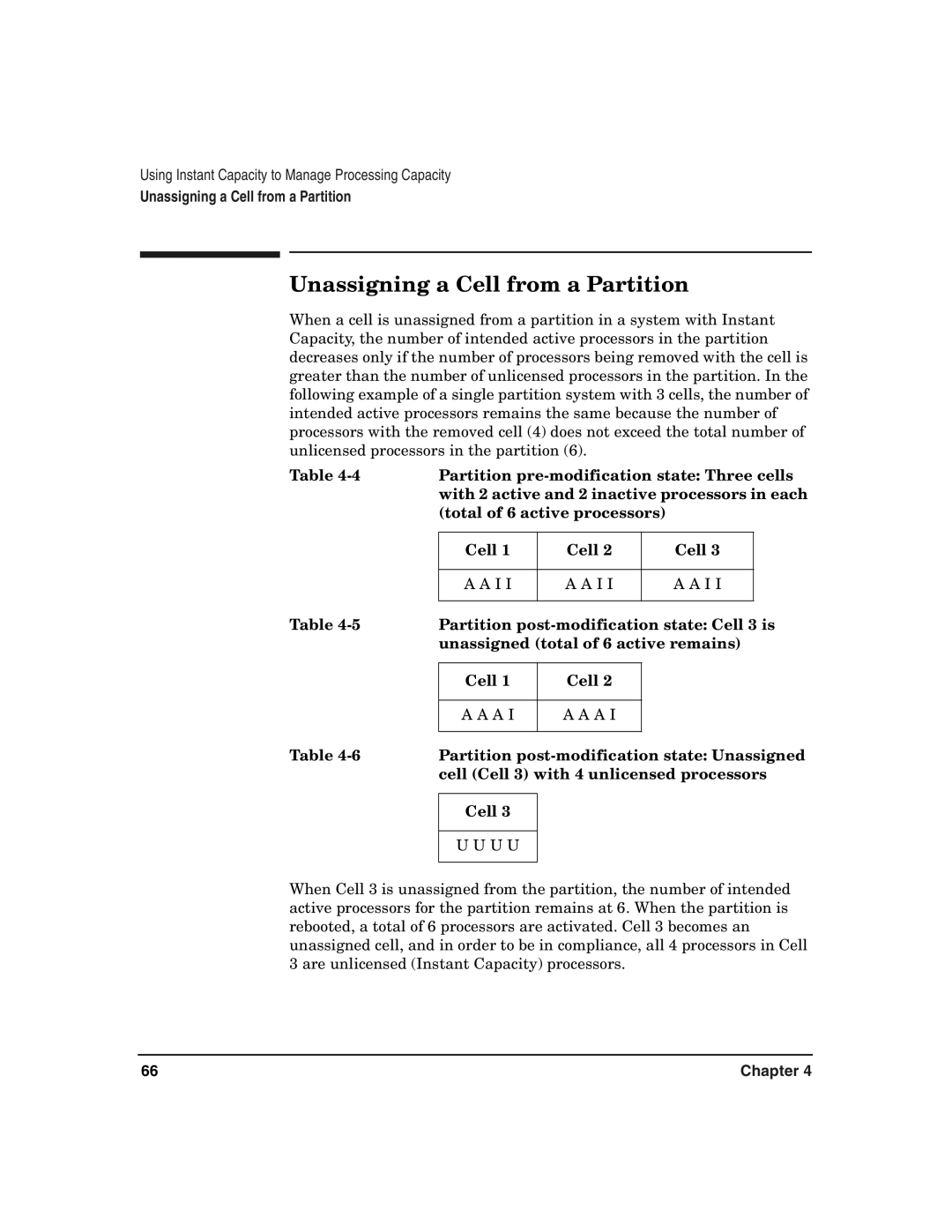
Using Instant Capacity to Manage Processing Capacity
Unassigning a Cell from a Partition
Unassigning a Cell from a Partition
When a cell is unassigned from a partition in a system with Instant Capacity, the number of intended active processors in the partition decreases only if the number of processors being removed with the cell is greater than the number of unlicensed processors in the partition. In the following example of a single partition system with 3 cells, the number of intended active processors remains the same because the number of processors with the removed cell (4) does not exceed the total number of unlicensed processors in the partition (6).
Table | Partition | ||||
| with 2 active and 2 inactive processors in each | ||||
| (total of 6 active processors) |
|
| ||
|
|
|
|
|
|
| Cell 1 | Cell 2 |
| Cell 3 |
|
|
|
|
|
|
|
| A A I I | A A I I |
| A A I I |
|
|
|
|
|
| |
Table | Partition | ||||
| unassigned (total of 6 active remains) | ||||
Cell 1
Cell 2
A A A I
A A A I
Table | Partition | |
| cell (Cell 3) with 4 unlicensed processors | |
|
|
|
| Cell 3 |
|
|
|
|
| U U U U |
|
|
|
|
When Cell 3 is unassigned from the partition, the number of intended active processors for the partition remains at 6. When the partition is rebooted, a total of 6 processors are activated. Cell 3 becomes an unassigned cell, and in order to be in compliance, all 4 processors in Cell 3 are unlicensed (Instant Capacity) processors.
66 | Chapter 4 |
